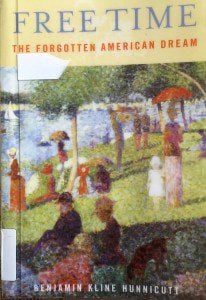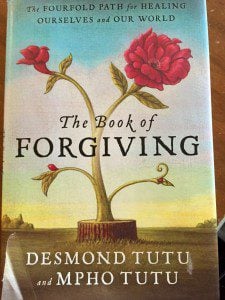(Richard Foster, Sanctuary of the Soul: Journey into Meditative Prayer (InterVarsity Press, 2011), 164 pages.
Richard Foster is best known for his book Celebration of Discipline, a bestseller he published in 1978 (the year I was born), which has sold more than two million copies worldwide. This book encourages Christians to focus on “The Inward Disciples” of meditation, prayer, fasting, and study; “The Outward Disciplines” of simplicity, solitude, submission, and service; and “The Corporate Disciplines” of confession, worship, guidance, and celebration. More than three decades later, the idea that spiritual practices are central to the Christian life may seem obvious, but any such obviousness belies how radical such a proposal was at the time in the world of evangelical Christianity. Foster’s book was a catalyst for many Protestants to reclaim some of the vital spiritual practices they had, for the most part, wrongfully abandoned in the wake of the Protestant Reformation. Roman Catholic and Eastern Orthodox traditions had, in contrast, retained most of these disciplines, and Foster’s book was a critical reminder to Protestants of the legacy they had abandoned. As a Protestant pastor and spiritual director (and as someone raised as an evangelical Christian), I am grateful for the ways Foster and others, such as Dallas Willard and Eugene Peterson, helped plough the path I am now walking.
Foster’s latest book is an opportunity to benefit from the insights he has gained in the ensuing decades. It’s a quick read, weighing in at only 165 pages and measuring only half the size of most books. But its contents reflect Foster’s immersion in the classics of Christian spirituality.
I will confess, however, as an avid reader of endnotes, that I was disappointed on the first page of Foster’s latest tome to see that his epigram of Jeremy Taylor’s wonderful quote, “Meditation is the tongue of the soul and the language of the heart,” was referenced as, “Quoted in Richard J. Foster, Prayer (San Francisco: HarperSanFrancisco, 1992), p. 143.”
After pulling this book off my shelf, I was pleased to see that in his previous volume, Foster does reference the original source of his quote. And as someone in the process of adapting his doctoral dissertation into a book proposal, I can sympathize with the temptation to reference your own work. But Foster’s failure to clarify the ‘Jeremy Taylor’ in question, left me originally to assume that he was referring to the contemporary Jeremy Taylor, whose books on the spiritual practice of Jungian dreamwork have benefited me greatly, such as Where People Fly and Water Runs Uphill: Using Dreams to Tap the Wisdom of the Unconscious and The Wisdom of Your Dreams: Using Dreams to Tap into Your Unconscious and Transform Your Life. But I discovered that Foster was quoting a very different Jeremy Taylor — not the 21-century Unitarian-Universalist minister in the United States, but the 19th-century Right Reverend Lord Bishop of Down, Connor, and Dromore in the U.K.
Overall, Foster’s book authentically reflects both his deep personal experience and increasing immersion in the classics of Christian spirituality, including a helpful appendix on “Resource Books for Your Journey.” However, his book is most appropriate for evangelical Christian audiences. For progressive Christians, I would recommend Martin Laird’s similarly sized and themed book A Sunlit Absence: Silence, Awareness, and Contemplation (Oxford University Press, 2011).
This book review is a part of the Roundtable at the Patheos Book Club. Visit the Book Club for more free resources related to this book.
The Rev. Carl Gregg is the pastor of Broadview Church in Chesapeake Beach, Maryland. Follow him on Facebook (facebook.com/carlgregg) and Twitter (@carlgregg).












